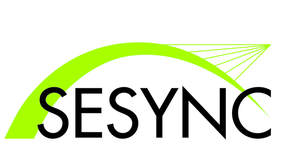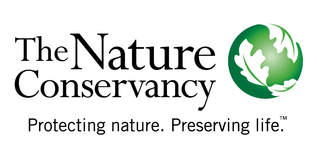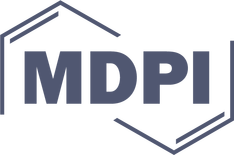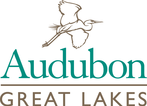2018 ARCHIVES: Workshops
Workshops provide training on a specific skill, technique, or process and may involve one or more instructors. Workshops are intended to emphasize learning through participation, discussion, and "hands-on" activities.
The following workshops will be offered at the 2018 US-IALE Annual Meeting. Attendance at workshops is by advance registration only, and an additional fee of $50 for professionals will be charged. Workshops will be half day in length, and will be offered on Tuesday, April 10th and Thursday, April 12th as indicated below.
Attention Students: There is no dedicated “student workshop” as in previous years. The program organizers are piloting a new approach to accommodate student needs by offering a free workshop registration to student attendees. Students will be able to sign up for one of these workshop offerings at no charge. However, please note that space will be limited.
The following workshops will be offered at the 2018 US-IALE Annual Meeting. Attendance at workshops is by advance registration only, and an additional fee of $50 for professionals will be charged. Workshops will be half day in length, and will be offered on Tuesday, April 10th and Thursday, April 12th as indicated below.
Attention Students: There is no dedicated “student workshop” as in previous years. The program organizers are piloting a new approach to accommodate student needs by offering a free workshop registration to student attendees. Students will be able to sign up for one of these workshop offerings at no charge. However, please note that space will be limited.
TUESDAY, APRIL 10, 1:00 PM – 5:00 PM
(W1) FROM DRONE TO LANDSCAPE - UAS DATA PROCESSING
Organizer: Justyna Jeziorska, Center for Geospatial Analytics, North Carolina State University
Overview: Did you know that you can use the pictures taken by the drone’s camera and process them to get high-resolution spatial data? Now you can learn how to do that! This workshop will focus on the hands-on guidance in Unmanned Aerial Systems imagery processing using Agisoft Photoscan. It will include everything from the data collection (sample UAS data will be provided) to generating results – DSM, orthophoto, point cloud and 3D model of the earth’s surface. Additionally, the participants will be instructed what to do to operate a drone and collect data legally in the U.S. With the increasing demand for the high spatial and temporal resolution data, drones are a cheap alternative for data collection. The knowledge how to process the RGB imagery to produce reliable and accurate models becomes an invaluable skill for anyone who works with spatial data.
Intended Audience: students and professionals, or just a drone enthusiast!
This workshop is BYOD: bring your own device
Overview: Did you know that you can use the pictures taken by the drone’s camera and process them to get high-resolution spatial data? Now you can learn how to do that! This workshop will focus on the hands-on guidance in Unmanned Aerial Systems imagery processing using Agisoft Photoscan. It will include everything from the data collection (sample UAS data will be provided) to generating results – DSM, orthophoto, point cloud and 3D model of the earth’s surface. Additionally, the participants will be instructed what to do to operate a drone and collect data legally in the U.S. With the increasing demand for the high spatial and temporal resolution data, drones are a cheap alternative for data collection. The knowledge how to process the RGB imagery to produce reliable and accurate models becomes an invaluable skill for anyone who works with spatial data.
Intended Audience: students and professionals, or just a drone enthusiast!
This workshop is BYOD: bring your own device
(W2) TELECOUPLING FRAMEWORK: CONCEPTS, APPLICATIONS, AND HANDS-ON EXERCISES WITH THE NEW CLOUD-BASED TELECOUPLING TOOLBOX
Organizers: Jianguo Liu, Francesco Tonini, Paul McCord, Min Gon Chung – Center for System Integrations and Sustainability, Michigan State University, USA
Overview: Landscapes across the world are increasingly interconnected, both ecologically and socioeconomically. To understand and manage such complex interconnections, a relatively new integrated framework of telecoupling is proposed (http://www.telecoupling.org). Telecouplings are socioeconomic and ecological interactions between multiple coupled human and natural systems (e.g., landscapes) over distances. They occur during trade, water transfer, payment for ecosystem services, foreign investment, migration, and tourism. They also emerge when information flows, organisms disperse, species invade, and diseases spread. The award-winning framework of telecoupling emphasizes reciprocal cross-scale and cross-border interactions (e.g., feedbacks). Telecouplings have profound implications for landscape sustainability as they can transform landscape structure, function, pattern, process, and dynamics. They pose new global challenges and offer exciting new opportunities for the landscape ecology community. In this workshop, we will introduce the telecoupling framework, present applications of the framework, and conduct hands-on exercises with the new Telecoupling GeoApp, a cloud-based application with a large collection of mapping and analysis tools to systematically study. Workshop participants will have an opportunity to apply the framework and web tools to their socio-environmental issues of interest.
Intended Audience: The target audience encompasses attendees at any career stage (e.g. students, postdoctoral scholars, professors, resource managers) and with a variety of interests, such as landscape change, climate change, natural resource policy and governance, biodiversity, ecology, and landscape patterns (e.g. connectivity) and processes (e.g. disturbance, dispersal, migration).
This workshop is BYOD: bring your own device
Overview: Landscapes across the world are increasingly interconnected, both ecologically and socioeconomically. To understand and manage such complex interconnections, a relatively new integrated framework of telecoupling is proposed (http://www.telecoupling.org). Telecouplings are socioeconomic and ecological interactions between multiple coupled human and natural systems (e.g., landscapes) over distances. They occur during trade, water transfer, payment for ecosystem services, foreign investment, migration, and tourism. They also emerge when information flows, organisms disperse, species invade, and diseases spread. The award-winning framework of telecoupling emphasizes reciprocal cross-scale and cross-border interactions (e.g., feedbacks). Telecouplings have profound implications for landscape sustainability as they can transform landscape structure, function, pattern, process, and dynamics. They pose new global challenges and offer exciting new opportunities for the landscape ecology community. In this workshop, we will introduce the telecoupling framework, present applications of the framework, and conduct hands-on exercises with the new Telecoupling GeoApp, a cloud-based application with a large collection of mapping and analysis tools to systematically study. Workshop participants will have an opportunity to apply the framework and web tools to their socio-environmental issues of interest.
Intended Audience: The target audience encompasses attendees at any career stage (e.g. students, postdoctoral scholars, professors, resource managers) and with a variety of interests, such as landscape change, climate change, natural resource policy and governance, biodiversity, ecology, and landscape patterns (e.g. connectivity) and processes (e.g. disturbance, dispersal, migration).
This workshop is BYOD: bring your own device
(W3) MOVING FROM PILOT PROJECTS TO A LANDSCAPE CONSERVATION PROGRAM: THE PRACTITIONER’S PLAYBOOK
Organizers: Bruce Roll, Ph.D., Director of Watershed Management for Clean Water Services (CWS) and the nonprofit Clean Water Institute (CWI) in Hillsboro, Oregon; Dr. Robert Emanuel, Water Resources Project Manager, Clean Water Services; Derek Godwin, Oregon State University, Extension Watershed Management faculty; Dr. Rebecca McLain, Research Assistant Professor, Institute for Sustainable Solutions, Portland State University
Overview: The Tualatin River Watershed in northwestern Oregon is home to one of the USA’s largest and most successful landscape conservation programs. Since 2005 this program called “Tree for All” (www.jointreeforall.org) has restored more than 120 river miles across more than 25,000 acres in the rural and urban landscapes of the watershed. Creating a landscape conservation program capable of acting on a watershed scale has been an interesting journey, and it becomes particularly inspiring when we consider the stressors of interesting weather events and rapid urbanization as well as the scale of action needed to create a resilient and healthy watershed. Looking back on this journey, we have identified the attributes that have guided Tree for All’s success, with the hope that they may help guide similar efforts (https://www.thenatureofcities.com/2017/08/27/tree-journey-rethinking-urban-growth-landscape-scale/). This workshop will provide participants with an opportunity learn about this program and the issues to consider when moving from pilot projects to a full scale landscape conservation program. This is an interactive workshop that will provide participants with examples and the technical and social considerations that help support the development of a landscape conservation program.
Intended Audience: Practitioners of landscape conservation programs, academic institutions, government agencies, social scientists. This workshop would be applicable to students as well.
Overview: The Tualatin River Watershed in northwestern Oregon is home to one of the USA’s largest and most successful landscape conservation programs. Since 2005 this program called “Tree for All” (www.jointreeforall.org) has restored more than 120 river miles across more than 25,000 acres in the rural and urban landscapes of the watershed. Creating a landscape conservation program capable of acting on a watershed scale has been an interesting journey, and it becomes particularly inspiring when we consider the stressors of interesting weather events and rapid urbanization as well as the scale of action needed to create a resilient and healthy watershed. Looking back on this journey, we have identified the attributes that have guided Tree for All’s success, with the hope that they may help guide similar efforts (https://www.thenatureofcities.com/2017/08/27/tree-journey-rethinking-urban-growth-landscape-scale/). This workshop will provide participants with an opportunity learn about this program and the issues to consider when moving from pilot projects to a full scale landscape conservation program. This is an interactive workshop that will provide participants with examples and the technical and social considerations that help support the development of a landscape conservation program.
Intended Audience: Practitioners of landscape conservation programs, academic institutions, government agencies, social scientists. This workshop would be applicable to students as well.
(W4) ECOHYDROLOGICAL MODELING FOR LAND AND CLIMATE CHANGE STUDIES
Organizers: Kunwar K. Singh, Department of Forestry and Environmental Resources, North Carolina State University, Raleigh, NC; Sheila Saia, Center for Integrated Forest Science, United States Forest Service Southern Research Station, Raleigh, NC
Overview: Changes in land use and climate affect ecosystem sustainability by altering the availability of essential resources. Ecohydrological models can quantify the effect of these changes on hydrological and ecological processes. However, integrating various key ecohydrological model components is often difficult for many interdisciplinary students and researchers. This workshop will provide students and researchers with skills to efficiently integrate spatial, weather, and hydrology data for building an ecohydrological model using the open-access software programs QGIS and R. This half-day workshop is targeted at ecohydrological modeling beginners. We will introduce basic concepts of organizing data, knowledge of data inputs, and uses of necessary software interfaces. Participants will gain hands-on experience building, calibrating, validating, and visualizing ecohydrological model outcomes in QGIS and R. We will also leave time to discuss and provide hands-on support for potential and current model set up, calibration, and validation issues. Participants will bring their own personal laptops and will be alerted prior to the workshop via email of specific software requirements required for participation in the workshop.
Intended Audience: Graduate students, and postdoctoral researchers
This workshop is BYOD: bring your own *WINDOWS* device
Overview: Changes in land use and climate affect ecosystem sustainability by altering the availability of essential resources. Ecohydrological models can quantify the effect of these changes on hydrological and ecological processes. However, integrating various key ecohydrological model components is often difficult for many interdisciplinary students and researchers. This workshop will provide students and researchers with skills to efficiently integrate spatial, weather, and hydrology data for building an ecohydrological model using the open-access software programs QGIS and R. This half-day workshop is targeted at ecohydrological modeling beginners. We will introduce basic concepts of organizing data, knowledge of data inputs, and uses of necessary software interfaces. Participants will gain hands-on experience building, calibrating, validating, and visualizing ecohydrological model outcomes in QGIS and R. We will also leave time to discuss and provide hands-on support for potential and current model set up, calibration, and validation issues. Participants will bring their own personal laptops and will be alerted prior to the workshop via email of specific software requirements required for participation in the workshop.
Intended Audience: Graduate students, and postdoctoral researchers
This workshop is BYOD: bring your own *WINDOWS* device
(W5) STATUS AND TRENDS IN LANDSCAPE FRAGMENTATION
Organizer: Peter VOGT, European Commission
Overview: The adequate monitoring and assessment of landscape fragmentation is of high importance for the design and evaluation of ecological programs and landscape management in general. Fragmentation is often reported as a purely descriptive measure, conducted for a given species and accounting for species-specific habitat requirements. However, a given landscape will exhibit a different degree of fragmentation depending on the species under study and its operational scale. The scope of this workshop is to illustrate a methodology providing a generic measure of fragmentation, summarizing a multitude of patch attributes over a series of observation scales. The same approach is used to localize and quantify dominant land cover classes. The multi-scale fragmentation analysis provides spatially explicit maps and summary statistics showing fragmentation in six categories: intact, interior, dominant, transitional, patchy and rare. A dedicated fragmentation change analysis scheme shows gross gain and loss, net change and delivers details on the transition of fragmentation classes over time. The workshop will provide a feature overview and outline the added value of the multi-scale analysis scheme. Workshop participants will conduct hands-on exercises on provided sample data sets to learn using the software and discuss the various processing options within the free software GuidosToolbox.
Intended Audience: students/professionals, landscape ecologists, landscape planners, digital data analysts
This workshop is BYOD: bring your own device
Overview: The adequate monitoring and assessment of landscape fragmentation is of high importance for the design and evaluation of ecological programs and landscape management in general. Fragmentation is often reported as a purely descriptive measure, conducted for a given species and accounting for species-specific habitat requirements. However, a given landscape will exhibit a different degree of fragmentation depending on the species under study and its operational scale. The scope of this workshop is to illustrate a methodology providing a generic measure of fragmentation, summarizing a multitude of patch attributes over a series of observation scales. The same approach is used to localize and quantify dominant land cover classes. The multi-scale fragmentation analysis provides spatially explicit maps and summary statistics showing fragmentation in six categories: intact, interior, dominant, transitional, patchy and rare. A dedicated fragmentation change analysis scheme shows gross gain and loss, net change and delivers details on the transition of fragmentation classes over time. The workshop will provide a feature overview and outline the added value of the multi-scale analysis scheme. Workshop participants will conduct hands-on exercises on provided sample data sets to learn using the software and discuss the various processing options within the free software GuidosToolbox.
Intended Audience: students/professionals, landscape ecologists, landscape planners, digital data analysts
This workshop is BYOD: bring your own device
THURSDAY, APRIL 12, 8:00 AM – 12:00 PM
(W6) SPATIAL ANALYSIS USING R
Organizer: Vijay Ramesh, PhD Student, Columbia University
Overview: In recent years, the usage of Spatial Analyses for Ecology has increased tremendously. Open source platforms such as QGIS and R have contributed to an increase in the usage of tools for such analyses. In this workshop, we will be using the programming environment in R to carry out spatial analyses. Topics covered include basic spatial operations and storage of data, vector and raster manipulation, packages and functions that offer tools analogous to ones offered in QGIS/ArcGIS and basics of static mapping. Basic knowledge of R and ArcGIS/QGIS is required. (Optional: Participants are encouraged to bring their own spatial datasets and manipulate them during the workshop).
Intended Audience: Students / Professionals (Beginner to Intermediate user in R)
This workshop is BYOD: bring your own device
Overview: In recent years, the usage of Spatial Analyses for Ecology has increased tremendously. Open source platforms such as QGIS and R have contributed to an increase in the usage of tools for such analyses. In this workshop, we will be using the programming environment in R to carry out spatial analyses. Topics covered include basic spatial operations and storage of data, vector and raster manipulation, packages and functions that offer tools analogous to ones offered in QGIS/ArcGIS and basics of static mapping. Basic knowledge of R and ArcGIS/QGIS is required. (Optional: Participants are encouraged to bring their own spatial datasets and manipulate them during the workshop).
Intended Audience: Students / Professionals (Beginner to Intermediate user in R)
This workshop is BYOD: bring your own device










